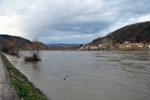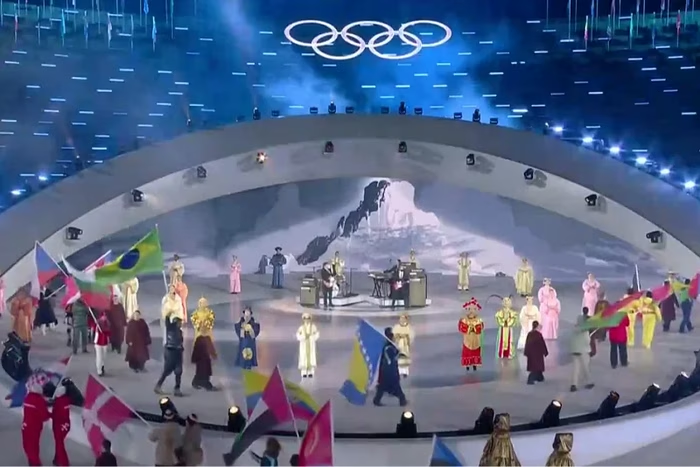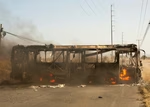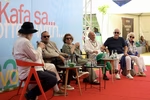International community's body in Bosnia against formation of auxiliary police
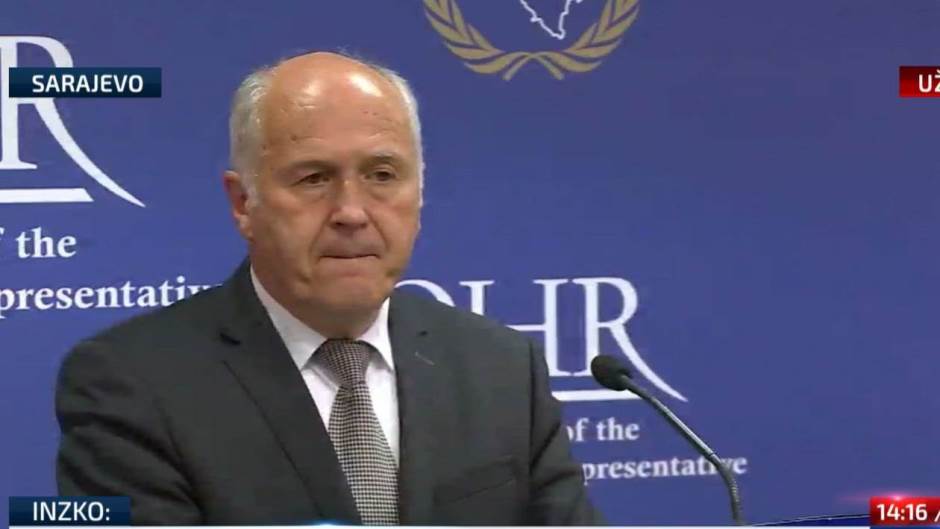
The international community's message is clear – provide the existing police forces in Bosnia with adequate resources and training so they can respond to all the challenges Bosnia currently faces, the international community's administrator Valentin Inzko said on Tuesday, following a two-day session of the community's body overseeing the peace implementation in Bosnia.
Asked to comment on the Serb-dominated entity's initiative to form an auxiliary police unit of some 1,000 strong, inzko said that journalists should ask them why they opted for that move.
“First they said they're forming it to fight terrorism, then to combat migrations, now they say it's for tackling natural disasters. We think the existing police forces can respond to all the challenges and that this is not the time to form new units,” Valentin Inzko, who serves as the international community's High Representative overseeing the civilian implementation of the Dayton Peace Agreement which ended the 1992-1995 war in Bosnia, after the two-day session of the Peace Implementation Council (PIC).
The PIC is the international community's body consisting of political directors, ambassadors of all the major Western powers and Russia jointly called the Steering Board (SB), whose mission is to oversee and advise the High Representative's work.
“We think there is no reason for the formation of the reserve unit. I think the fewer arms in Bosnia, the better. As far as natural disasters are concerned, the Civil Protection Agency is cooperating with all other stakeholders very well and that Bosnia's Armed Forces can also find solutions for these problems,” Inzko added.
According to him, Bosnian politicians should work on improving the citizens' low level of trust in the state prosecution, which is why so many people have left the country, arguing that their departure from the country is their way of protesting against the status quo.
Following Inzko's address, the PIC SB issued a Communique in which they summarized the two-day discussion.
The PIC SB restated that Bosnia's to semi-autonomous entities, the Bosniak-Croat shared Federation of Bosnia and Herzegovina (FBiH) and the Serb-dominated Republika Srpska (RS) have no right to secede from the country and only exist legally by virtue of the Constitution.
They reminded the authorities that Bosnia's Constitution is an integral part of the Dayton Peace Agreement and that the decisions of the State Constitutional Court are final and binding and must be implemented.
The ambassadors welcomed the publication of the European Commission’s (EC) Opinion on Bosnia and Herzegovina’s European Union (EU) membership application from last month, recommending it to fundamentally change and improve its legislative and institutional framework, and providing a comprehensive roadmap with key priorities on future reforms that would help lead the country to graduate from international supervision.
“The PIC SB noted with deep regret that more than eight months after the general elections were held in October 2018, the relevant executive authorities on the state level, in the FBiH and in a number of cantons have not been formed. This delays the implementation of the democratic choice made by the citizens of Bosnia and Herzegovina and prevents the country from undertaking the necessary reforms,” the Communique said.
After the election results were announced, the ethnic-oriented parties that won the majority vote remained unable to reach a compromise on the formation of the State-level Government as well as governments in the FBiH and several of its cantons. The main reasons for this are the so-called “national interests” on which all the parties vehemently insist.
As Bosnia's Constitution states that each government must consist of a certain number of Bosniaks, Serbs and Croats, none of the ethnic-oriented parties wants to back down from their demands allowing the government to be formed.
The PIC SB deplored the fact that irresponsible and divisive rhetoric and political actions have continued after the 2018 General Elections, including through challenges to the territorial integrity of BiH and state-level institutions such as references to secession, advocacy for the division of Bosnia into three territorial units, saying that such initiatives and statements have led to a severe fall in mutual trust and cooperation among the key stakeholders.
The Steering Board particularly stressed that NATO members of the PIC SB and Japan welcomed the opportunity for the authorities to submit Bosnia and Herzegovina’s first Annual National Program (ANP), a locally-developed tool that will further help Bosnia to enhance its defence capabilities, to the benefit of all BiH citizens.
The ANP is a precondition for the activation of Bosnia's Membership Action Plan (MAP) for NATO after the Alliance approved its activation for the country. But, even though Bosnia adopted a number of laws and regulations saying it will fulfil all the preconditions for the MAP, Bosnian Serbs stand against it.
When it comes to Bosnia’s NATO membership, its three largest ethnic groups stand divided on the issue. Bosnian Croats and Bosniaks support the country’s accession, while Bosnian Serbs are strictly against it, saying they will follow Serbia’s lead on this.
The RS' National Assembly even adopted a Declaration in 2017 stipulating the entity will remain militarily neutral and that they will not join any military alliance.
The foreign diplomats further asked the authorities to complete the formation of parliamentary and executive authorities at all levels without further delay and to cease blocking or obstructing the implementation of election results.
The authorities must “clearly and actively, demonstrate their declared commitment toward the country’s EU integration path by taking immediate and concrete action in fulfilling key priorities and reforms as identified in the European Commission’s Opinion in the fields of rule of law, fundamental rights, public administration reform, as well as democracy and functionality,” the Communique said.
They also called on Bosnia's authorities to significantly intensify efforts to improve electoral process credibility and transparency by implementing the fundamental changes to the electoral legislation recommended by several international bodies and examine other changes as necessary.
The Russian Federation said they disagree with this Communique.
Kakvo je tvoje mišljenje o ovome?
Učestvuj u diskusiji ili pročitaj komentare





 Srbija
Srbija
 Hrvatska
Hrvatska
 Slovenija
Slovenija













